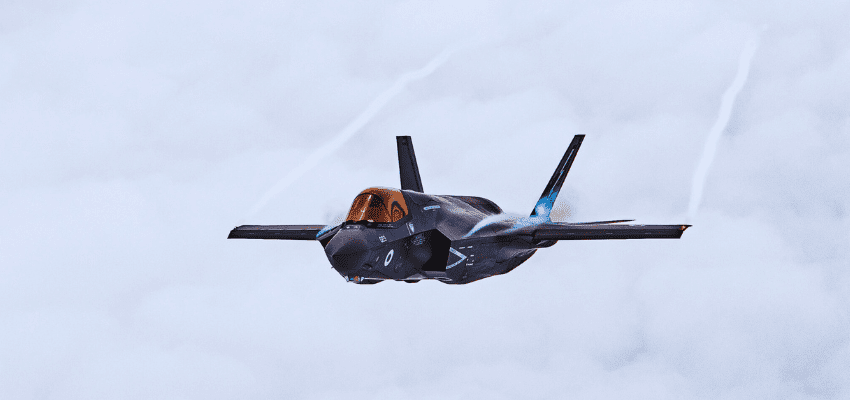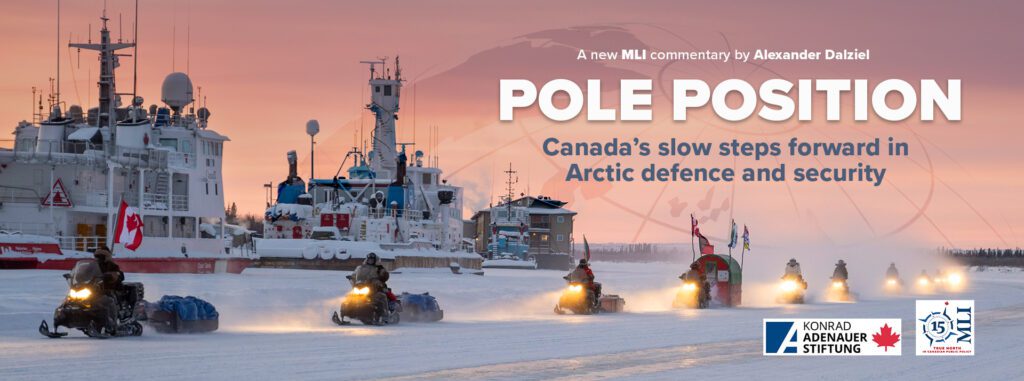This article originally appeared in The Hub.
By Richard Shimooka, March 19, 2025
The announcement by Minister of National Defence Bill Blair that Canada will explore ways to replace the planned purchase of the remaining 72 American-made F-35 fighter jets with another option has sent shockwaves through the Canadian defence establishment.
My last piece warned directly about these sorts of rash announcements and their potential to damage the Canadian Armed Forces. I never imagined a new government would move so fast and act so recklessly, though. This decision will have deleterious consequences for the Royal Canadian Air Force and the security of Canada, and may only deepen the rift between the two countries.
Much of the justification behind the policy shift does not hold up to scrutiny. The most commonly cited argument is that the U.S., driven to act on the Trump administration’s aggressive attitude over Canadian sovereignty, might theoretically be able to remotely shut down the aircraft, thereby compromising Canadian security.
The anxiousness over the hypothetical infringement of a Canadian F-35’s operation is ironic and quite hypocritical, given the complete lack of public concern over how the Government of Canada has already effectively dismantled its current fighter fleet’s operational capability over the past decade. At present, the RCAF has withdrawn from providing rotations for NATO air policing missions and keeps less than eight aircraft on NORAD alert—the bare minimum of availability required.
If protecting Canadian sovereignty was an actual objective here, the government would have judged the situation to be unacceptable decades ago and addressed it. Yet the basis of this policy move is not about the actual capability; rather, it’s a reflexive populist effort to assuage nationalist sentiments of anti-Americanism. The government is once again prioritizing politics over Canadian security.
That’s not to say there are no legitimate concerns raised by the recent rhetoric and actions of Trump’s administration. The tariffs and financial threats are a clear effort to remake America’s foreign and domestic economic relations. This will cause serious damage to the Canadian economy and needs to be managed carefully.
However, as Alex Lanozska, Balkan Devlen, and I recently argued, the actual threat of the U.S. trying to annex Canada is exceedingly low, given the practical legal and political difficulties of such a move. Beyond that, both countries’ overall interests remain aligned on North American security. Canada plays a critical role in defending the United States. The U.S. shutting down those Canadian fighters would just weaken its own security, which is the administration’s top defence priority. Ultimately, Canada is a North American nation, and its integration into NORAD is essential for U.S. security as well. This blunt fact could be a leverage point in potential negotiations if used right—but cancelling the F-35 purchase is not that.
The reality of modern warfare is that battlefield networking and interconnectivity dominate the battlefield and operating seamlessly with allies has been a core objective of the CAF since the Second World War. Thus the existence of a “kill switch” on F-35s, (if one exists), wouldn’t even be the first, second, or third concern for the military. More salient areas the Americans could target would include disrupting Canada’s ability to use secure GPS access, which would completely cripple the CAF, as would denying access to the Five Eyes intelligence sharing network, or key command and control systems within NORAD.
Moreover, it should be noted that if the F-35 purchase is cancelled, the timeline to switch programs will be well over four years, long after Trump’s second term is over. And it’s not like the other alternatives are any better on this front—one can identify similar security concerns with other potential options.
For example, the current leading contender in the 2027 French presidential election is Marine Le Pen of the far-Right Front National, who has significant ties with the Russian Federation. That certainly would make it a less trustworthy supplier. Furthermore, Germany’s previous government under Olaf Scholz and other countries have put operational limitations on the equipment used in Ukraine, a conflict in their direct national interest. Overall, Canada can’t just avoid these concerns by changing aircraft—they exist to varying degrees with every potential supplier.
Switching streams now would almost certainly do far more real damage to the RCAF than any theoretical scenario where the U.S. curtails access to the F-35. At present, the RCAF has a severe shortage of pilots and maintainers for its tactical fleet. This can be attributed in large part to the delay in replacing the CF-18 fighter jets, which are now reaching 40 years old and facing obsolescence. The personnel flying and maintaining these have seen higher-than-average attrition, which has contributed to the low availability of the fighter force.
One of the main fears among the RCAF staff over the past decade has been that the political leadership would put its finger on a competition’s scales and select an aircraft that is clearly inferior, solely to avoid the embarrassment of having to go back on their election promise to not buy the F-35. Now, the government’s statement has reignited the same uncertainty that has pervaded the service for the past decade.
As noted earlier, the F-35 is part of an emerging sea change in warfare, where operating within a system of interlinked capabilities is viewed as essential for success. It is part of the reason why the aircraft has been sold to 19 non-U.S. partners. The other three options—Saab Gripen (Sweden), Airbus Eurofighter (European consortium), and Dassault Rafale (France) represent designs from a previous generation and cost more as well, as other competitions have discovered.
Following through with this decision would saddle the RCAF with an orphan fleet of 18 F-35s which would do much of the actual work of the air force, and a potentially smaller number of far less capable aircraft—and would be even more costly, as a 2014 DRDC study has shown.
In sum, this is a terrible idea, born entirely of political considerations and not the actual security needs of Canada. Mark Carney has cast himself as a sober, level-headed manager able to make the most rational decisions in Canada’s best interests. He should prove it by quashing any talk of cancelling the F-35 purchase and take a more serious approach to defence issues overall.







